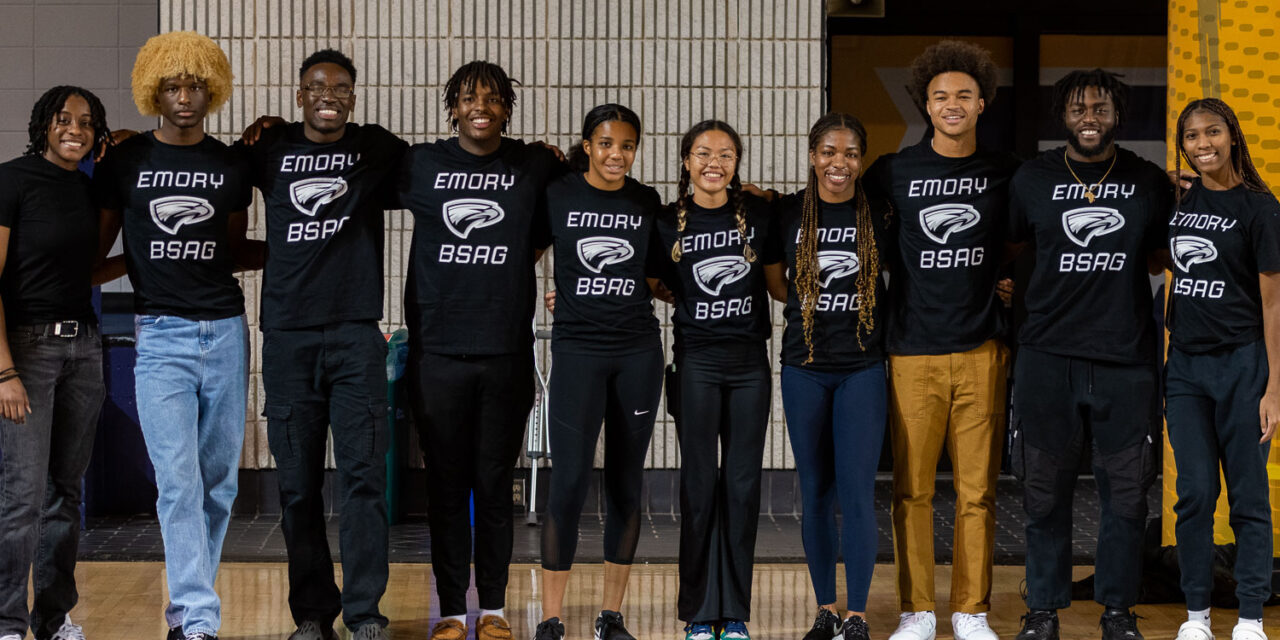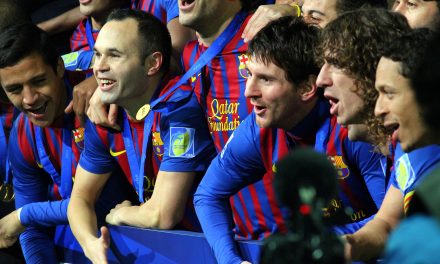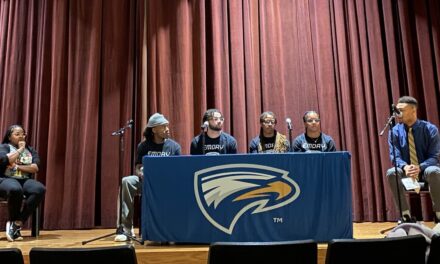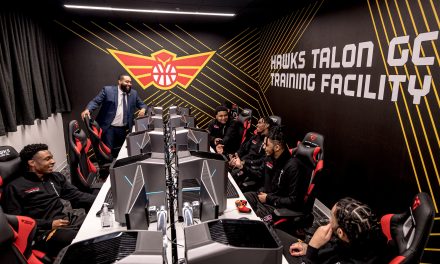Emory’s Black Student-Athlete Group (BSAG) is one of many student-run organizations aimed at helping students flourish. BSAG offers mentorship for Black student-athletes, ranging from what classes to take to networking opportunities in the greater Atlanta community.
Former Emory men’s basketball forward Dubem Nnake (23C) and current track & field sprinter and jumper Geoff Point-du-Jour both became aware of Black student-athlete groups at other universities in 2022 at University Athletic Association events. Both wondered why Emory did not have a similar organization, sparking the creation of Emory’s BSAG that year.
In their first year, the club brought in guest speakers, hosted panels and engaged with the Atlanta community. BSAG members worked directly with Drew Charter School in Atlanta as mentors and talked about their experiences as Black athletes at a historically white institution. They also hosted “Black Out” games for Emory’s men’s and women’s basketball teams’ matchups against the University of Chicago in January.
Nnake said the group hopes to maintain its connection to Drew Charter School (Ga.) and expand its mentorship program to other schools. Additionally, Nnake said BSAG aims to increase fundraising for community outreach, launch a formal study hall for members and partner with Atlanta’s historically Black institutions, like Spelman College (Ga.) and Morehouse College (Ga.).
BSAG members are not only mentors within the Emory community but also to each other. Former BSAG freshman representative and sophomore track & field sprinter Sydney Holden (26C) said juniors and seniors in BSAG are “invaluable” and said she “could go to them with literally any question.”
Point-du-Jour said that it can be especially isolating at Emory, where many members are the only Black athletes on their respective teams. Nnake said BSAG is an “extra support group” outside of their team.
“You’re on a team, and there’s not that many people who look like you,” Holden said. “And as a freshman, you may not feel the need to be in a community like the Black student-athlete group, but as your time progresses, having people who are smart, who are doing athletics and who look like you goes a long way and that creates a powerful connection between all of us.”
BSAG also aims to create an alumni network to connect current students and graduates. Junior track & field sprinter Andrea McPherson, who also serves as the organization’s parliamentarian, has worked to form these relationships.
McPherson said that BSAG creates a strong support system for Black student-athletes at Emory.
“I’ve always been, maybe, the only Black person in a class,” McPherson said. “As long as I know my purpose there, I don’t have to rely on what other people think of me or judge me or anything like that.”
Although BSAG is student-run, the group also has support from faculty members. Emory Associate Professor of History Carl Suddler teaches research interests around race, crime and sports. He assists BSAG by extending invitations for guest speaker events and providing personal guidance on networking and utilizing Emory resources.
After Suddler worked on a documentary with the NFL Network for Black History Month, he invited the director to speak with BSAG members who were interested in filmmaking, podcasts and content creation.
“It’s through those kinds of experiences [students] are able to not only capitalize on their resources here at Emory, but really be able to branch out into the city in different ways,” Suddler said.
To Suddler, BSAG is “for students and by students,” and he said that its importance extends beyond sports, especially in light of the recent Supreme Court decisions against affirmative action.
“Sports for Black people has meant so much for racial progress in this country … particularly racial progress through access to higher education,” Suddler said. “To ensure that the Black student-athletes at Emory not only can keep their experiences center, but also realize that their experiences are part of this much longer legacy of how Black folks have been able to make significant strides in our country’s history, is important.”
Holden said that freshmen shouldn’t hesitate to give organizations like BSAG a shot because there is “a community for you” with people who “want to support you.”
“Don’t be afraid to join,” Nnake said. “Don’t be afraid to network and ask questions when you do join because it’s a group that’s here to help you and that’s here to support you.”
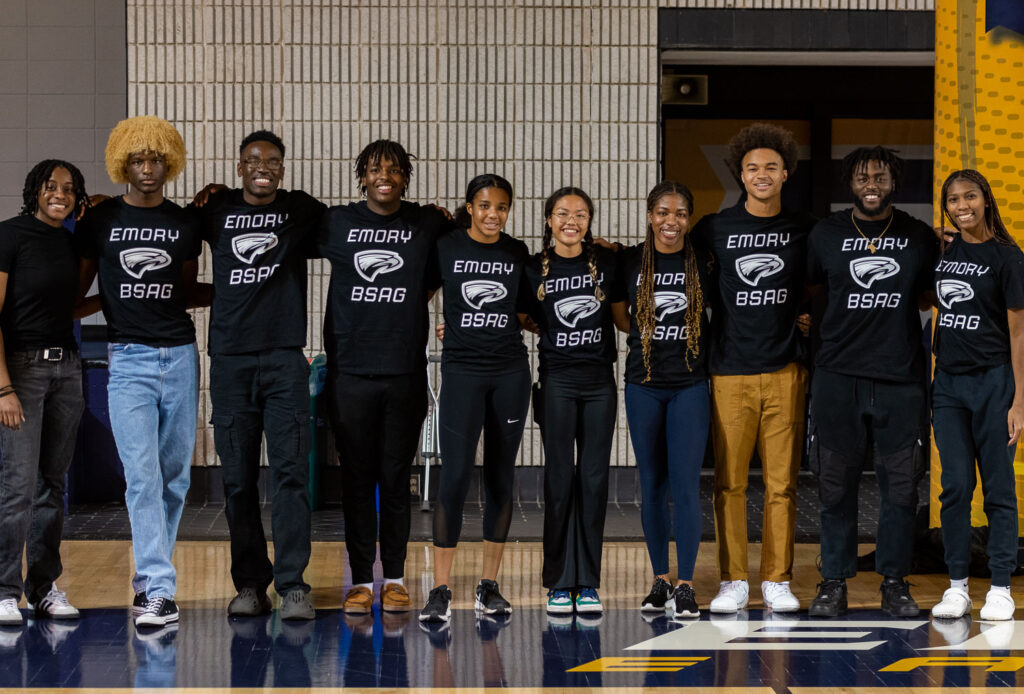
Members of Emory’s Black Student-Athlete Groups attended the “Black Out” games for Emory’s men’s and women’s basketball teams in January. (Natalie Sandlow/Staff Photographer)
Grace Reyer (she/her) (24B) is from Croton on Hudson, New York, on the business track with concentrations in environmental management and film and media management. Reyer is also a member of the Emory Women’s Soccer team, and an avid fan of both LeBron James and Megan Rapinoe. Aside from athletics, Reyer also loves to travel, paddleboard, and hike.

